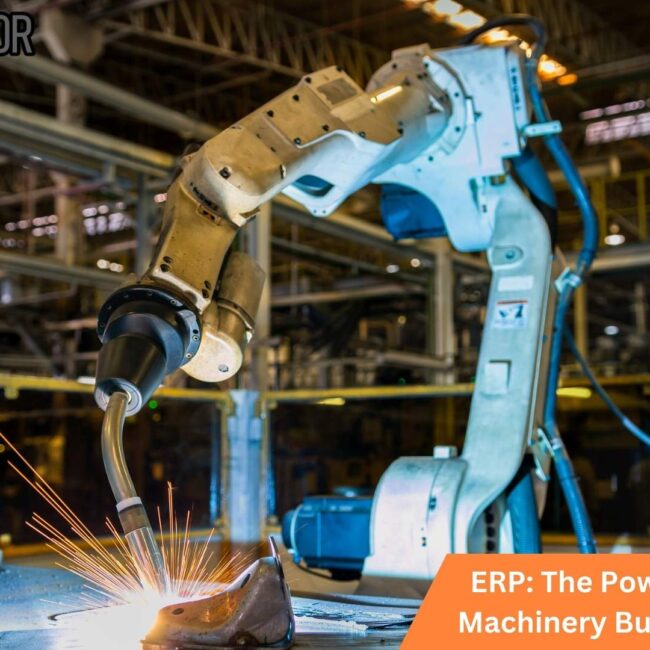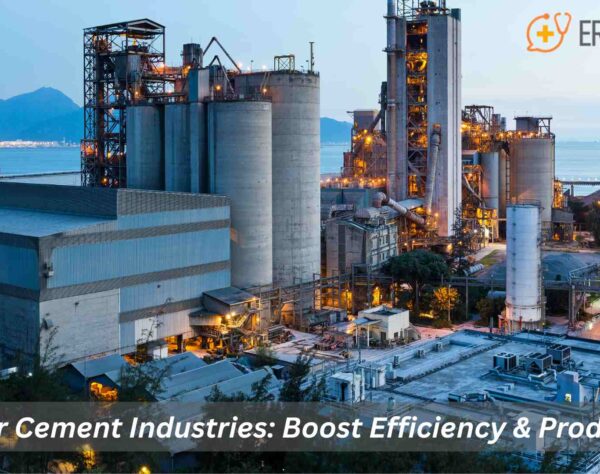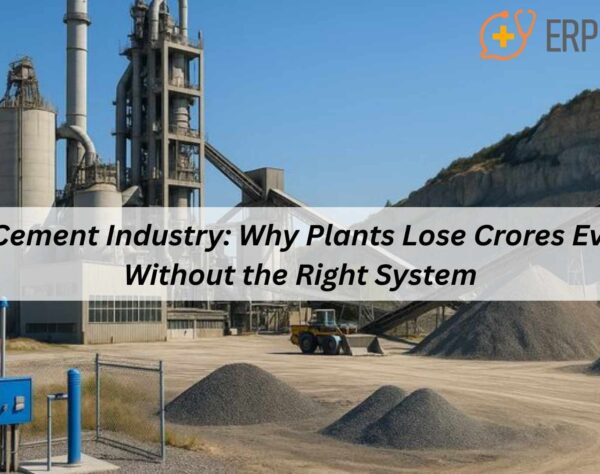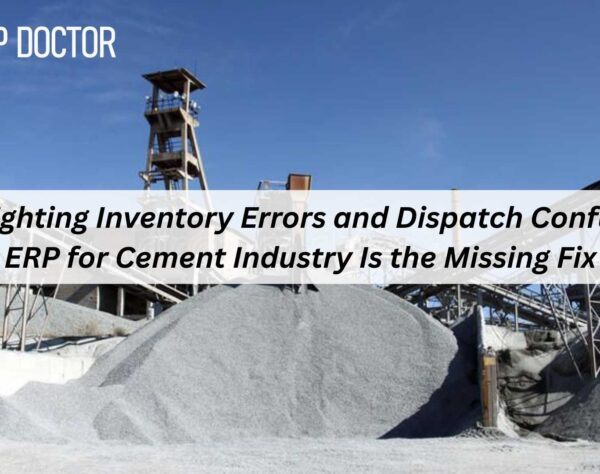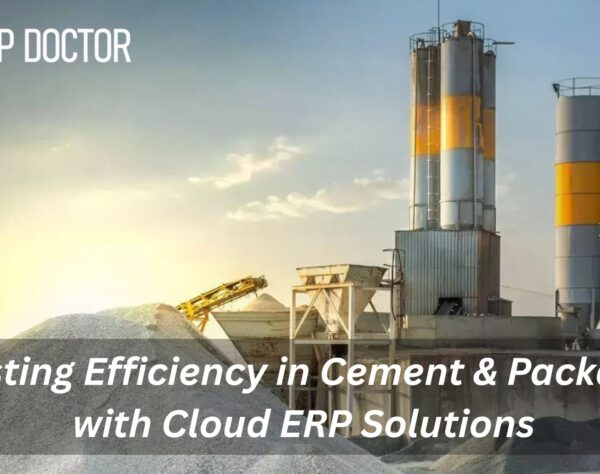
Solid Foundations Start with ERP – Cement Your Success
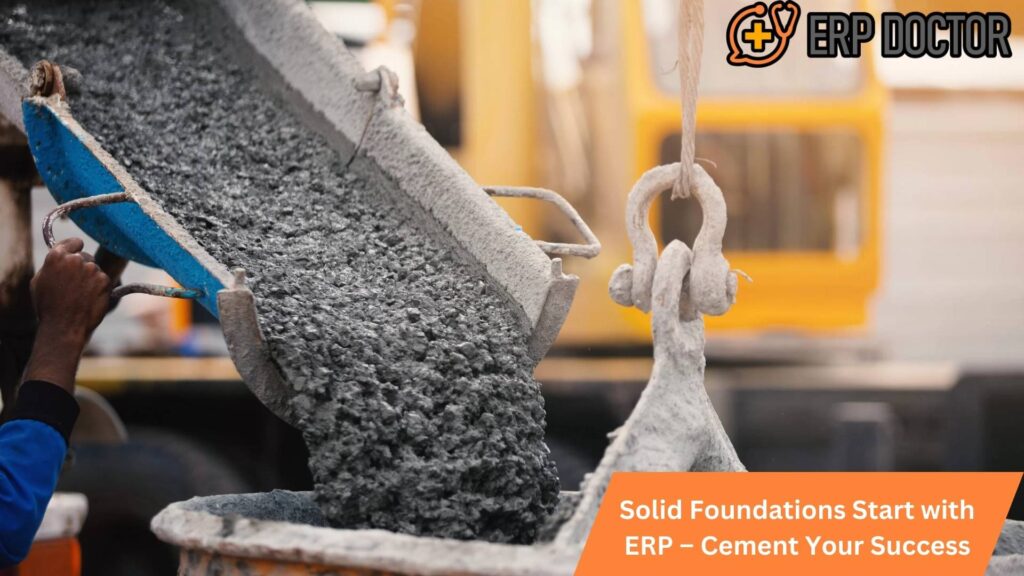
How ERP is Transforming the Cement Industry
The cement industry operates in a highly competitive and resource-intensive environment. Managing the production process, handling supply chains, maintaining equipment, and ensuring product quality — all while keeping costs under control — is a complex task. Traditional management systems often fall short in handling these complexities, leading to inefficiencies, production delays, and increased operational costs.
This is where ERP (Enterprise Resource Planning) systems step in as a game-changer for the cement industry. An ERP system integrates and automates all business processes, including production, inventory, sales, finance, and supply chain management, into a single platform. By providing real-time visibility and control over every aspect of the business, ERP helps cement manufacturers streamline operations, reduce costs, and enhance profitability.
In this blog, we’ll explore how ERP is strengthening the foundation of the cement industry and why adopting an ERP system is essential for long-term success.
Why the Cement Industry Needs ERP: A Game-Changer for Efficiency and Growth
The cement industry is one of the most critical sectors driving infrastructure development worldwide. However, it’s also an industry plagued by high production costs, complex supply chains, and rigid compliance regulations. Traditional management systems often struggle to keep pace with these challenges — that’s where ERP (Enterprise Resource Planning) solutions come in.
An ERP system acts as the central nervous system for cement manufacturing operations, integrating data, automating workflows, and enabling real-time decision-making. Let’s explore how ERP is transforming the cement industry and setting the stage for long-term growth.
1. Turning Complexity into Simplicity with Supply Chain Automation
Managing a cement production supply chain is like solving a 3D puzzle. From sourcing raw materials like limestone and gypsum to managing transportation and delivery — every step is interconnected.
✅ ERP provides end-to-end visibility into the supply chain.
✅ Automates procurement, supplier management, and logistics.
✅ Reduces material waste by balancing demand and supply.
Example: If a supplier is delayed, the ERP system can automatically adjust the production schedule and update delivery timelines to minimize disruption.
2. Cutting Down High Production Costs with Smarter Planning
Cement production involves complex machinery and high energy consumption — two major cost drivers. Inefficient planning can lead to excessive downtime and wasted resources.
✅ ERP systems optimize production schedules to reduce energy use.
✅ Tracks machine performance and schedules preventive maintenance.
✅ Reduces downtime with real-time monitoring and automated alerts.
Example: If a grinding machine shows signs of failure, ERP can generate an alert and schedule maintenance before it leads to a costly breakdown.
3. Ensuring Product Quality and Consistency
Consistency in cement strength and composition is vital for customer satisfaction and construction standards. Manual quality checks can’t keep up with large-scale production.
✅ ERP automates quality checks during production.
✅ Monitors product consistency and adjusts production in real time.
✅ Generates detailed quality reports for compliance and analysis.
Example: If a batch of cement shows a strength inconsistency, the ERP system can automatically adjust the mixing ratio or flag the batch for review.
4. Data-Driven Decision-Making for Strategic Growth
In the cement industry, market demand can shift rapidly due to infrastructure projects and government regulations. Quick response requires real-time insights.
✅ ERP provides real-time data on production, sales, and inventory.
✅ Analyzes market trends and adjusts production forecasts.
✅ Tracks KPIs (Key Performance Indicators) to identify growth opportunities.
Example: If a major infrastructure project increases cement demand, ERP can automatically adjust production schedules to capitalize on the opportunity.
5. Financial Automation and Cost Control
Managing cement production finances manually leads to errors and missed opportunities. Complex transactions, high material costs, and labor expenses demand a streamlined financial system.
✅ ERP automates expense tracking, invoicing, and payroll.
✅ Provides real-time financial reports and budget analysis.
✅ Ensures compliance with tax and financial regulations.
Example: ERP can consolidate expense reports and highlight areas where cost savings are possible — like optimizing transportation routes.
6. Workforce Optimization and Labor Cost Reduction
Labor costs form a significant portion of production expenses in the cement industry. Efficient workforce management can unlock major savings.
✅ ERP automates employee scheduling and shift planning.
✅ Tracks employee performance and identifies productivity gaps.
✅ Reduces overtime costs and improves payroll accuracy.
Example: ERP can detect high overtime costs and recommend optimized scheduling to reduce expenses.
7. Streamlining Inventory and Material Usage
Overstocking increases storage costs, while understocking leads to production delays. Cement companies need just-in-time inventory management to maintain efficiency.
✅ ERP provides real-time inventory tracking across multiple production sites.
✅ Automates reordering based on production needs and market demand.
✅ Reduces material wastage by balancing supply and demand.
Example: If limestone stock drops below a threshold, ERP can automatically generate a purchase order, ensuring uninterrupted production.
8. Achieving Regulatory Compliance with Confidence
Environmental and safety regulations are becoming more stringent in the cement industry. Failure to comply can lead to hefty fines and reputational damage.
✅ ERP tracks emissions, waste disposal, and energy usage.
✅ Automates safety checks and employee training schedules.
✅ Generates compliance reports for audits and regulatory bodies.
Example: If emissions exceed permissible limits, ERP can alert the production team and adjust operations to remain compliant.
💡 Why ERP is the Future of Cement Manufacturing
The cement industry operates on thin margins and high competition. A well-implemented ERP solution brings:
✅ Cost Savings – Optimizes production and reduces waste.
✅ Efficiency Gains – Automates workflows and reduces downtime.
✅ Strategic Insights – Real-time data for smarter business decisions.
✅ Enhanced Customer Satisfaction – Consistent product quality and faster delivery.
ERP is more than just software — it’s a strategic enabler. Cement companies that embrace ERP are positioning themselves for a competitive edge in an evolving market. The question is no longer if you need ERP, but when you’ll implement it to unlock your full business potential.
👉 Ready to transform your cement business with ERP?
Discover how ERPDoctor can help you build a more efficient and profitable future.
FAQs
1. How does ERP improve production efficiency in the cement industry?
ERP automates production scheduling, tracks machine performance, and ensures real-time process monitoring to prevent delays and reduce waste.
2. Can ERP help with supply chain management in the cement industry?
Yes, ERP provides real-time tracking of raw materials, automates procurement, and optimizes transportation schedules.
3. How does ERP enhance inventory control in cement manufacturing?
ERP systems track inventory levels, automate reordering, and prevent overstocking or shortages.
4. Can ERP reduce operational costs for cement manufacturers?
Yes, ERP reduces costs by automating workflows, improving production efficiency, and reducing labor expenses.
5. How does ERP support regulatory compliance in the cement industry?
ERP tracks emissions, generates compliance reports, and ensures accurate data for audits.
6. How does ERP improve financial management for cement companies?
ERP automates billing, expense tracking, and financial reporting, improving cash flow management.
7. Can ERP integrate with existing production systems in cement manufacturing?
Yes, ERP systems are designed to integrate with legacy production and management systems.
8. How does ERP handle workforce management in the cement industry?
ERP automates employee scheduling, payroll, and performance tracking.
9. What are the benefits of real-time data in cement manufacturing?
Real-time data enables faster decision-making, better demand forecasting, and improved operational efficiency.
10. How quickly can a cement company implement an ERP system?
Implementation time varies, but most ERP solutions are designed for quick deployment and scalability.



